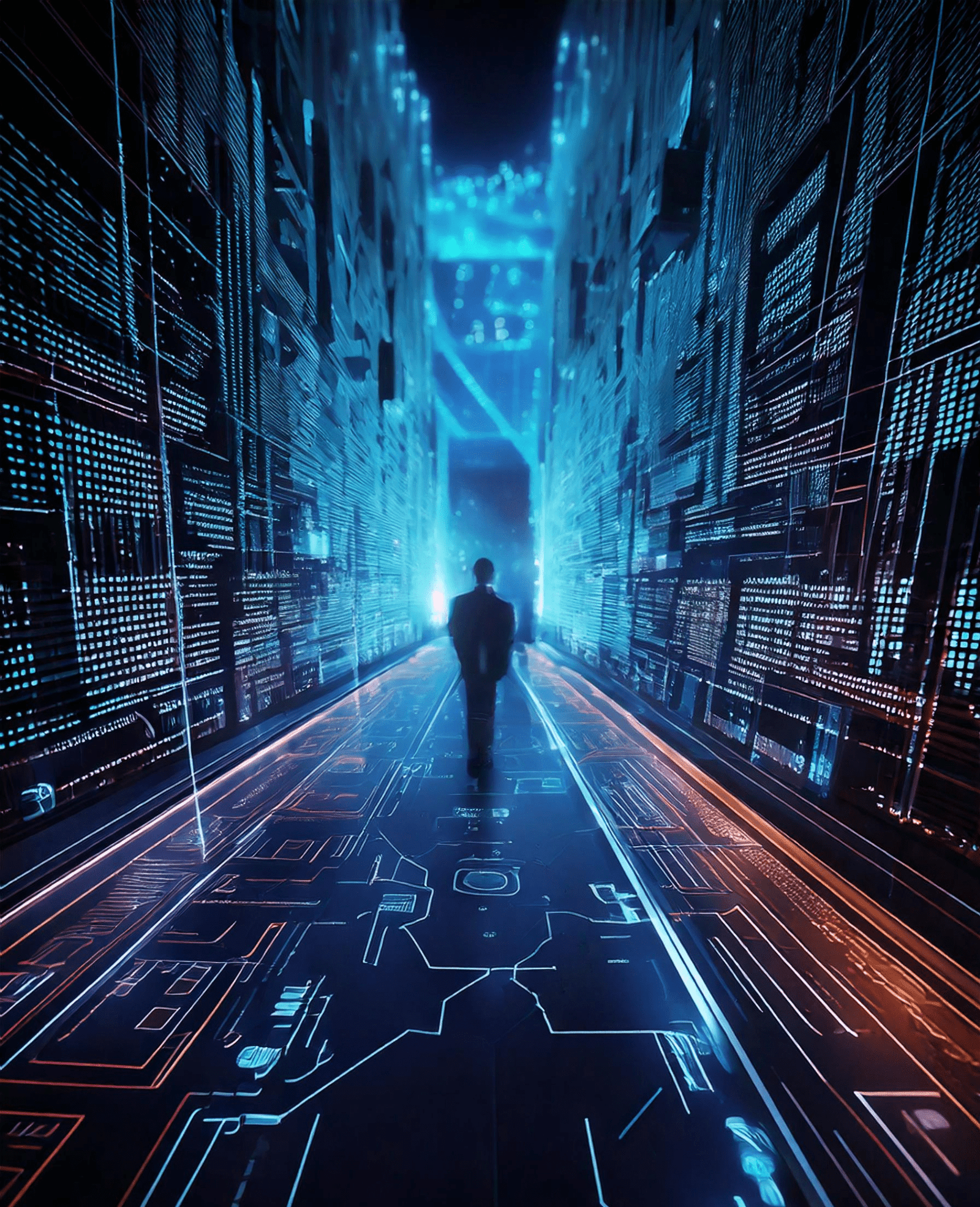Software is no longer just a tool; it’s an integral part of our lives, seamlessly blending into everything from the devices in our pockets to the algorithms shaping global industries. The future of software isn’t just about faster processing or sleeker interfaces—it’s about fostering creativity, enhancing collaboration, and transforming the way we solve problems. Let’s explore the emerging trends and ideas shaping the next generation of software.
Software as a Creative Partner
Imagine designing a website without knowing a single line of code. Or composing a symphony with the guidance of an AI collaborator. This is the reality of today’s generative software tools. Platforms like Figma for design or GitHub Copilot for coding are not just utilities—they’re partners in creativity.
The Next Frontier
Future software will further democratize creation. AI-driven platforms will empower artists, engineers, and educators to break through technical barriers, unlocking innovation that was once the domain of experts. The emphasis will shift from the mechanics of creation to the art of ideation.
The Rise of Adaptive Software
Gone are the days of one-size-fits-all solutions. The next wave of software will adapt to the unique needs and behaviors of individual users. Imagine an application that learns how you work and evolves to optimize your workflow.
How It Works
- Behavioral Learning: Software will analyze patterns to predict user needs and suggest proactive solutions.
- Personalized Interfaces: Dynamic dashboards and interfaces will mold themselves to individual preferences, creating seamless experiences.
- Context-Aware Assistance: Applications will anticipate challenges and provide support in real-time, whether it’s debugging code or managing tasks.
The Human Touch in Automation
Automation is often seen as a replacement for human effort, but the future of software lies in augmentation rather than substitution. Software will handle repetitive tasks, allowing humans to focus on strategy, innovation, and empathy.
Applications in Action
- Healthcare: Automated diagnostic tools will assist doctors by highlighting anomalies, leaving them more time for patient care.
- Education: AI tutors will handle repetitive lessons while teachers focus on personalized mentoring.
- Business: Workflow automation tools will streamline operations, freeing leaders to innovate.
Code as a Universal Language
Software is breaking down barriers between disciplines. Today’s engineers collaborate with biologists, marketers, and artists, creating cross-disciplinary solutions that were unthinkable a decade ago. The rise of low-code and no-code platforms further accelerates this trend, inviting non-technical professionals to contribute to software development.
A Unified Approach
This evolution fosters collaboration by:
- Bridging technical and non-technical roles.
- Enabling faster prototyping and iteration.
- Encouraging diverse perspectives in problem-solving.
The Ethical Dimension
As software becomes more powerful, ethical considerations are taking center stage. Developers and companies are now grappling with questions of data privacy, algorithmic bias, and sustainability.
Building Ethical Software
- Transparency: Open-source frameworks and clear documentation will become standard.
- Privacy-First Design: Applications will prioritize user control over data.
- Green Coding: Sustainable development practices will minimize the environmental impact of software systems.
A Glimpse Ahead
The future of software isn’t confined to technological advancements; it’s a cultural shift. It’s about redefining how we interact with technology and with each other. As software continues to evolve, it will shape new forms of creativity, collaboration, and ethical responsibility.
Picture a world where software doesn’t just execute commands but understands intentions. A world where code is as much a canvas for creativity as it is a tool for functionality. That’s the future we’re building—bridging the gap between code and creativity to unlock the full potential of human ingenuity.uada lectus sapien ullamcorper nulla.




